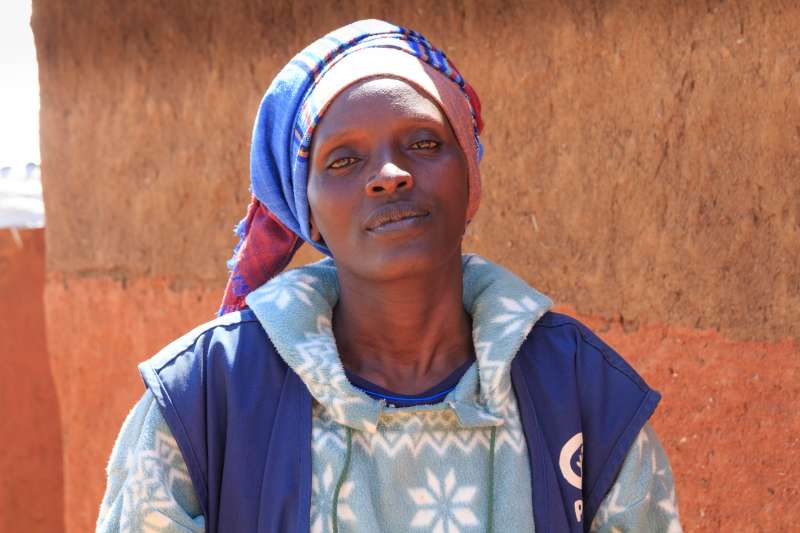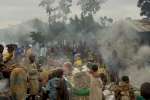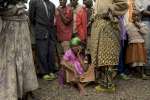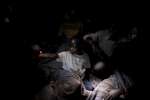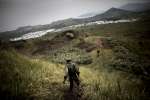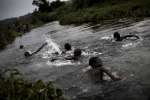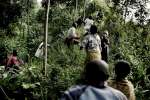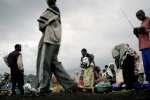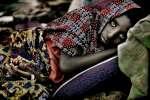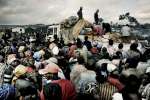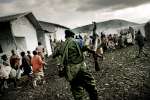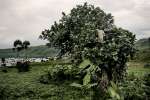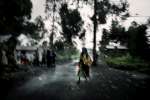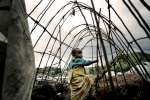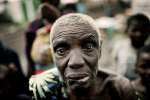- Text size
 |
|  |
|  |
| 
- Français
Refugee and sexual violence survivor restores hope in Rwanda
News Stories, 7 December 2015
KIGALI, Rwanda, Dec 7 (UNHCR) – Jacqueline Umutesi had a traumatic childhood. But that hasn't stopped the 37-year-old refugee from helping to heal others as one of Rwanda's most outspoken community organisers fighting sexual and gender based violence (SGBV).
Jacqueline's own experiences of exile and violence underpin her work, having been forced to flee her home in Itongo in Rutshuru, Democratic Republic of Congo (DRC) at the age of just 14. For a year, she and her family lived in the Mudende Refugee Camp. Then, in 1997, a militia invaded and opened fire, killing hundreds.
Seeking safety, Jacqueline moved to Gihembe Refugee Camp, which today houses over 14,500 Congolese refugees – almost all of whom are survivors of the massacre. But, for this young woman, the nightmare was only just beginning.
One year after arriving in Gihembe, Jacqueline experienced a cultural practice known as guterura – traditional bride kidnapping. "In the middle of the night, a group of people came to my home," she recalls. "I was seventeen. They put a plastic bag over my mother's head so she could not see, and they took me."
"The following year I gave birth to a girl, my first born daughter," she continues. "The man who took me became my husband. He was a soldier from the DRC. This was our culture so neither I nor my parents could object."
For the next two decades, Jacqueline was subjected to violence, humiliation and deprivation. "Even when I became pregnant, my husband would beat me," she says. "He would sleep with other women and became infected with HIV. He was angry and tried to set fire to my house, so I ran away to live with my mother."
Despite her fears, Jacqueline was determined to restart her life. Today, she is part of a team of nine community mobilizers with UNHCR partner Plan International, who work in Gihembe camp, engaging in discussions and raising awareness of SGBV and gender equality.
The results of their efforts are clear to see. "In our culture, it used to be accepted that anything a man says, he is right," she says. "The only person who had the right to speak in the house was the man. But it is changing. Now if a woman speaks it is considered a discussion."
And that's not all – crucially, the practice of bride kidnapping and forced marriage has stopped, and physical and sexual violence against women and girls is no longer considered acceptable. "Today, if someone beats his wife, people cry out against him and we bring them to the police. So there are consequences."
Jacqueline often performs in theatre productions to raise awareness about sexual violence. "Although the stories are fictional, it is very emotional for me and I often cry," she says. "People say that I am a very good actress, but I am just acting out the emotions that I am feeling from my own life experiences."
However, survival sex is still a problem, with many refugee women and girls desperate enough to sell their bodies for food, clothing or other essential needs. As a mother, Jacqueline worries about her daughter. "I worry about the risks she faces after school, especially survival sex, which is a problem for adolescent girls," she says. "At least when my daughter is in school, I know I don't have to be worried."
But, having seen how her work has already transformed the lives of women and girls in the camp, Jacqueline has high hopes for the future.
"I hope that by telling other women what happened to me today, tomorrow the same thing cannot happen to them."
By Martina Pomeroy in Kigali
